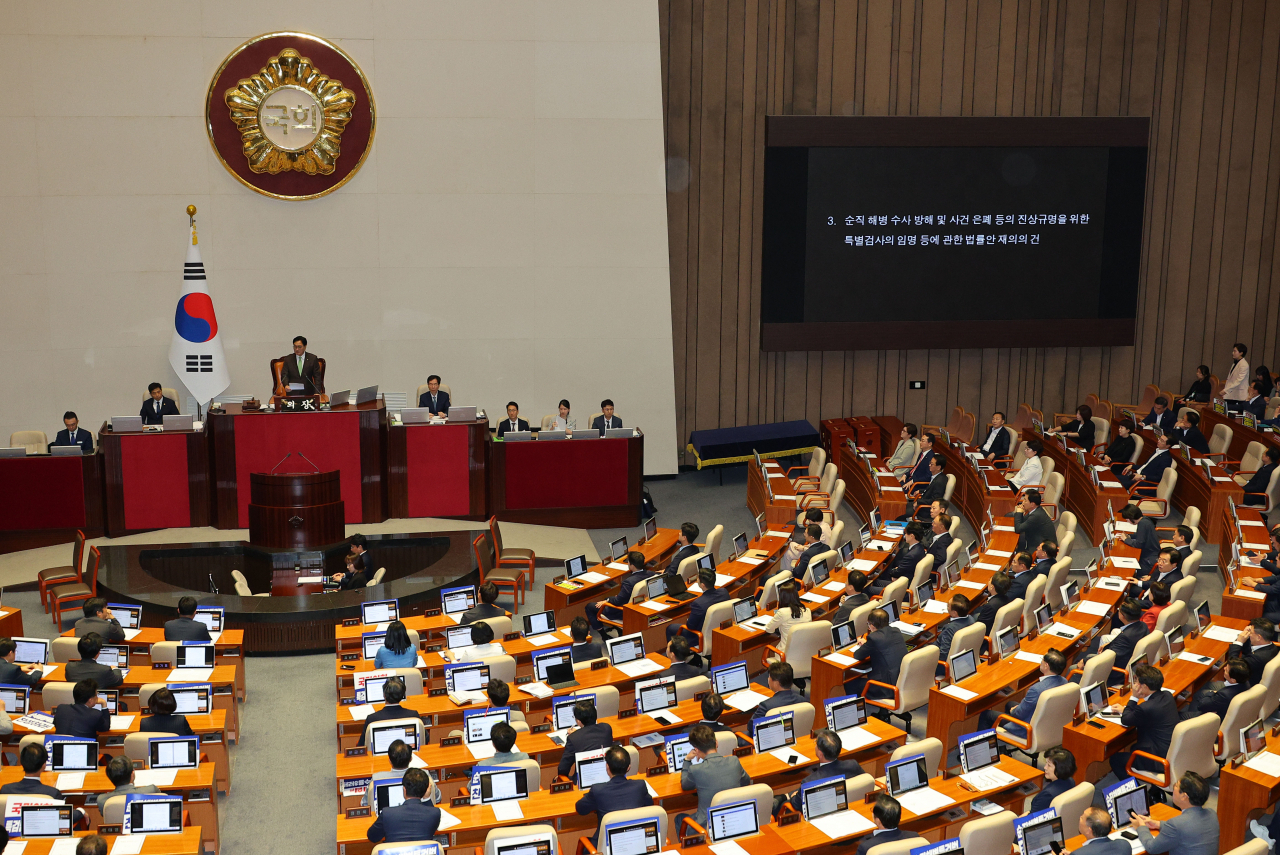 |
The National Assembly holds a plenary session in western Seoul on Thursday. (Yonhap) |
Gridlock is expected to persist in South Korea's legislature, as the rival parties remain locked in a cycle of the ruling party filibustering opposition-led bills, with the president then vetoing them, with no efforts to find bipartisan consensus.
The latest in this ongoing political tug-of-war centers on a series of broadcasting bills to curb government influence over public broadcasters. On Sunday, the opposition-led National Assembly passed the second of four such bills, overriding a filibuster by the ruling People Power Party.
Sunday’s bill expands the board of the Korean Broadcasting System, a state-funded public broadcaster, from 11 to 21 members, and widens the authority to recommend members from the government to media-related academic associations and viewer committees. Its passage follows a similar scenario just days earlier when the first bill in the series passed despite a ruling party filibuster.
Filibusters allow the minority ruling party to voice its opposition and potentially delay votes by up to 24 hours. But with the opposition's greater number of seats, filibusters are largely just time-buying measures.
Under the National Assembly Act, a filibuster can be terminated after 24 hours if three-fifths of the lawmakers -- or 180 out of 300 -- consent. With the main opposition Democratic Party of Korea and other opposition parties holding 189 seats, there have been enough votes for the opposition to end any filibusters and push through a final vote on the bill. The president can then either promulgate or veto the bill.
If vetoed, the opposition falls short of the two-thirds (200 votes) required to override the veto, resulting in a political stalemate.
The current gridlock is set to continue through the rest of the summer as the Democratic Party plans to reintroduce key progressive initiatives in the coming month. These include a universal cash transfer program of 250,000-350,000 won ($180-$252) per citizen -- a central promise in April's election championed by Rep. Lee Jae-myung, the party's former leader seeking a second term, but criticized by opponents as fiscally reckless.
Also on the agenda is the "Yellow Envelope Act," a pro-labor bill placing limits on employers' ability to make claims against unions for legitimate labor disputes, vetoed by President Yoon Suk Yeol in November last year.
Last week the president vetoed a bill mandating a special counsel to investigate alleged government interference in a probe into the death of Marine Cpl. Chae Su-geun, 20, during a search in July last year.
The presidential office has already hinted at skepticism regarding the above four broadcasting bills, suggesting more vetoes may be imminent. The ruling party also plans to ask Yoon to veto the bills, according to party officials. In December 2023, Yoon vetoed a broadcasting bill virtually identical to the one proposed in the current parliamentary session, which kicked off in May.







![[Today’s K-pop] Blackpink’s Jennie, Lisa invited to Coachella as solo acts](http://res.heraldm.com/phpwas/restmb_idxmake.php?idx=644&simg=/content/image/2024/11/21/20241121050099_0.jpg)